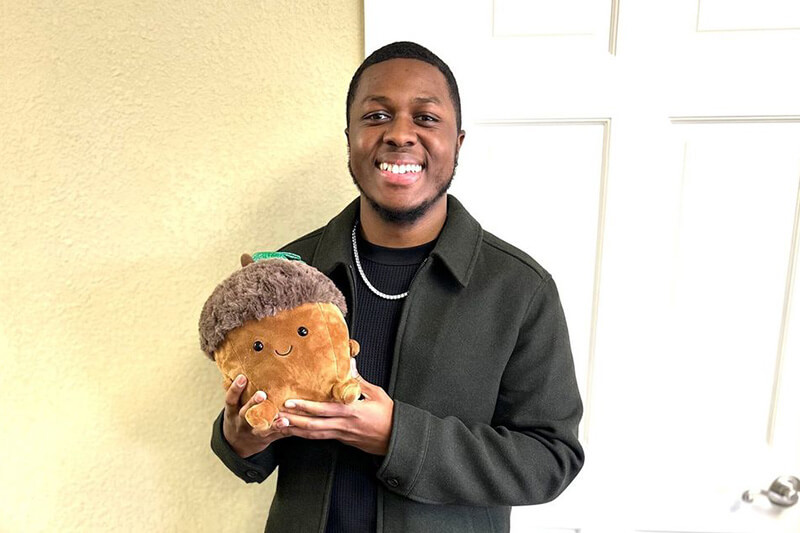Community Service: UWG’s Nonprofit Internship Program Offers Unique Opportunities to Students, OrganizationsShare this page
Internships in higher education are the bridges that connect academic theories to real-world practices, but the benefits don’t necessarily apply to only students. When the University of West Georgia established the Nonprofit Internship Program, its charge was symbiotic: to foster a collaborative environment where both parties grow and achieve their respective goals.

In this case, local organizations benefit from hosting quality UWG interns while working toward their mission without breaking the bank and students can find a greater sense of place and belongingness while building their professional networks and developing transferable skills. The most recent cohort of internships were sponsored by the Alice Huffard Richards Fund and the Coweta-Fayette EMC.
“The program helps to support UWG’s dedication to curate a first-choice university by giving students meaningful experiences that allow them to work with professionals on projects that have real outcomes for our community,” said Amanda Wright, UWG’s executive director of business and partnership development. “Through their internships, students are also able to expand their professional networks. Some students have been hired by the organization they interned with or by another organization they connected to through the internship. Other students leave the internship feeling more confident in their career choices.”
One such student was Jordan McCord ’24, who worked with the Community Foundation of West Georgia (CFWG). A recent computer science graduate, the internship allowed McCord to combine his interest in automating processes with his dream of making a difference in others’ lives.
“The foundation was looking for someone with a computer science background who could put themselves in the viewpoint of their users by testing the software to ensure it worked as expected,” he described. “I took a course on this exact thing the semester before and was ready to put the lessons to use in a real-world setting. I also loved that the project was for a good cause to help the community get the resources they needed. When I lived in Carrollton, I would donate toys to children every Christmas and wished I could do more. This allowed me to impact the community on a much bigger scale.”
McCord said that working alongside people who have decades of experience in software development taught him a lot about being flexible, the importance of clear and concise communications, and the value of teamwork.
“Having a great team is vital to success,” he continued. “Everyone should feel heard and respected when they speak. Feeling like you are being listened to builds confidence within a team and gives room for people to challenge ideas. Without pushback, there’s no way to improve. It’s not just about making a working program; it’s about solving an issue and making it seamless and enjoyable for the end user.”
CFWG was so impressed with McCord’s work that when the internship concluded in April and he graduated in May, he was hired as a quality assurance analyst.
McCord said he is grateful to the foundation and the university for the opportunity and advised others to learn as much as possible and not be afraid to ask questions.
“Asking questions shows you’re interested in learning more,” he concluded. “There’s always room for improvement, and there shouldn’t be shame in being curious.”
